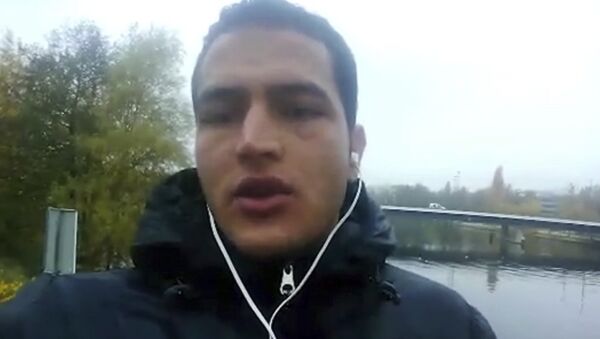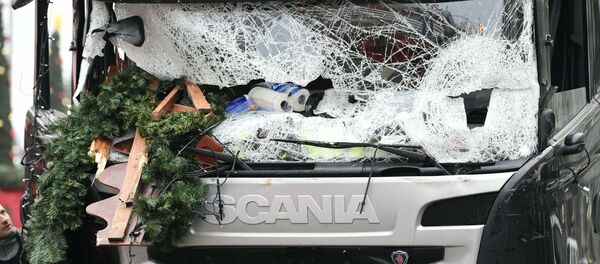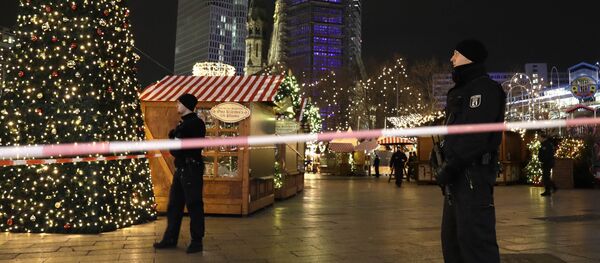On May 10, 24-year-old Amri was officially classified a threat in Dusseldorf at the criminal investigation office, and was in Berlin in February, although he was restricted to North Rhine-Westphalia, the area where he applied.
A program on media company WDR, Aktuelle Stunde, noted a profile of Amri indicating that he was in contact with people tied to Daesh while in North Rhine-Westphalia. The suspect first drew suspicion in Berlin for having close contact with people connected to the “Salafist-Islamist scene.” While in Germany Amri visited 15 mosques, 12 of which were located in the western Ruhr region.
Authorities also believe the dead attacker may have been linked with Germany-based Salafist minister Ahmad Abdulaziz Abdullah A., also known as Abu Walaa, who has been labeled a "hate preacher" by German police.
Amri is suspected of driving a truck into a crowd of shoppers in a Berlin Christmas market on December 19, killing a dozen people and wounding 48. He was shot and killed by police in Milan, Italy, on Friday after shooting and injuring an officer who had asked him for identification. A train ticket found on his body showed that he took a high-speed train from France to Turin in northern Italy, then to the suburbs of Milan.
On December 22 he was spotted on closed-circuit television cameras on the platform of a train station in Lyon Part-Dieu, France.
Daesh has taken credit for the attack, calling Amri a "soldier of the Islamic State." German officials are investigating how the Tunisian entered France after the attack and whether he received assistance from Daesh while escaping from Germany to France, and then to Italy.




